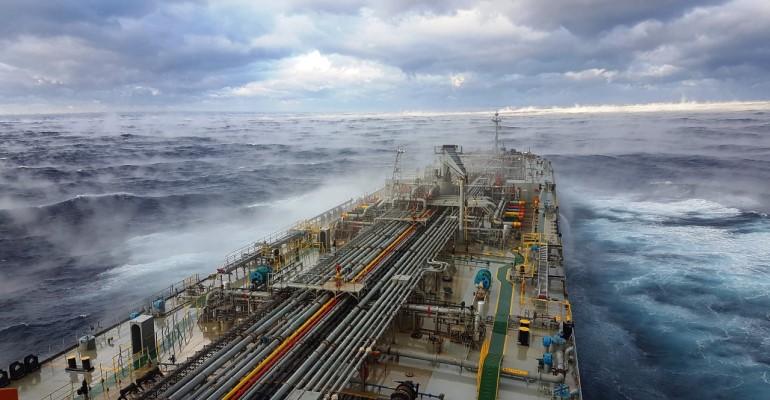As the listed tanker companies report their 2024 Q1 earnings, they’ve continued to meet or exceed expectations. Generally, they’ve been able to curry investor favor through shareholder friendly dividend payouts and share buybacks.
On the financial front, they’ve been able to reduce leverage through paying off bank debt or converting expensive leasing obligations by conversions into lower cost instruments, as well as paydown.
One of the best performers has been International Seaways (NYSE: INSW), which has reported Q1 earnings of $2.92 per share, well above the analysts’ consensus of around $2.40 per share.
Jefferies’ Omar Nokta, with a “Buy” rating on the shares, which surged to prices above $61 per share on the earnings “beat”, has written, in his latest report: “Seaways reported 1Q results that were well above expectations, and declared a total dividend for the quarter of $1.75/sh, higher than we anticipated. It has been active on all fronts with a focus on consolidating debt, securing new charters, adding to its newbuilding tally, acquiring modern secondhand ships, selling older vessels all while lowering its gearing and rewarding shareholders.”
In describing its Q1 results, INSW pointed to spot timecharter equivalent (TCE) of $44,700 per day on both VLCCs and Suezmaxes, $40,900 per day on Aframaxes, an astounding $66,300 per day on LR1s, and $38,000 per day on MR tankers.
Looking ahead to the Q2 results, these would be released sometime around end July/ early August, the VLCC fleet fixed so far on spot business - more than 60% of available days - has been booked at $50,800 per day. The other sizes are being put away at TCE’s at or exceeding the Q1 numbers. Jefferies’ target price is $66 per share; analyst Greg Lewis, from BTIG, putting a target of $70 on the shares, cited the “robust forward bookings” as part of his rationale. For comparison with the healthy pricing guidance, INSW traded at around $19 per share when the Ukraine hostilities began.
On the product side, Evercore ISI analyst Jon Chappell points to Torm (Nasdaq: TRMD) as sailing “From Strength to Strength”. With a price around $36 per share, he buttresses his “Outperform” rating with a price target of $45 per share. The veteran analyst, commenting on market conditions generally, said: “Importantly, 2Q-to-date spot rates have come in well ahead of our estimates as the product tanker market remains elevated owing to restricted capacity growth and still-expanding ton-mile demand related to global growth and the impact of vessel re-routing from Russian sanctions and displaced Red Sea cargoes.”
In his analysis, he cites Torm’s extensive fleet acquisitions, and sales of older vessels, in 2023-2024, and adds, “TRMD retains immense operating leverage to the robust spot rate environment, yet continues to strengthen its balance sheet while simultaneously maximizing capital returns to shareholders.”
TRMD was trading around $8 per share, before ratcheting upward in February 2022. In the company’s Q1 report- the importance of “geopolitics lifting product tanker rates to a new normal” is emphasized; they point to longer voyage distances and to “increasing ton-mile demand on top of the fundamental drivers.”
Product tanker giant Scorpio Tankers (NYSE: STNG) will be reporting on 9 May . With its price rising to new highs hitting $75 per share in mid week, compared with $14 per share as the bull run was beginning, with analysts anticipating quarterly earnings of around $3.70 per share. STNG’s market capitalisation is approaching $4 billion.
Copyright © 2024. All rights reserved. Seatrade, a trading name of Informa Markets (UK) Limited.
Add Seatrade Maritime News to your Google News feed.  |

